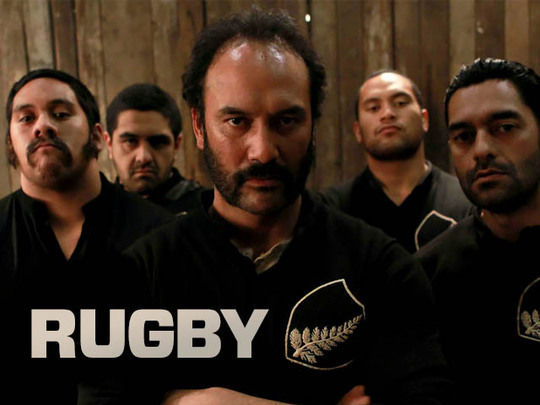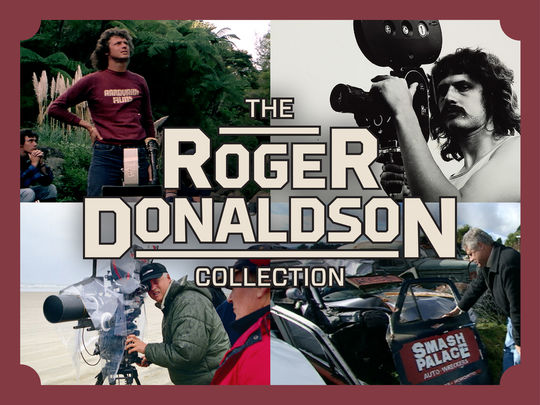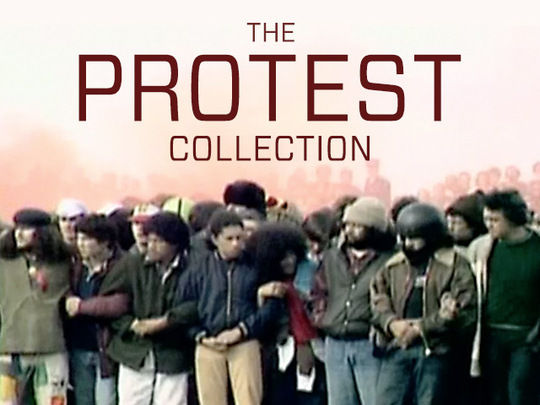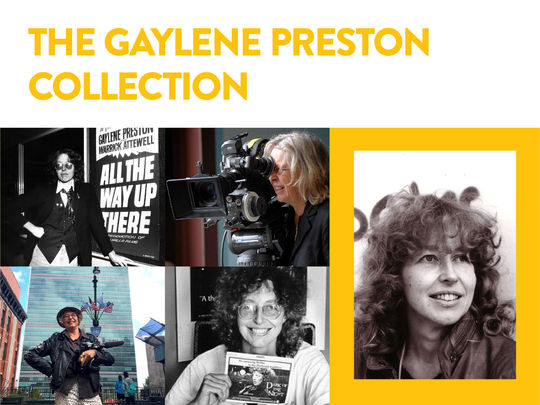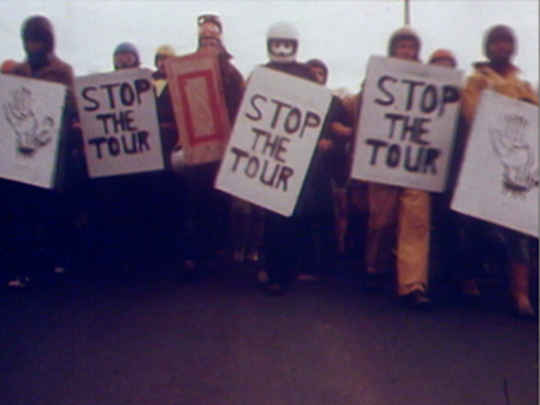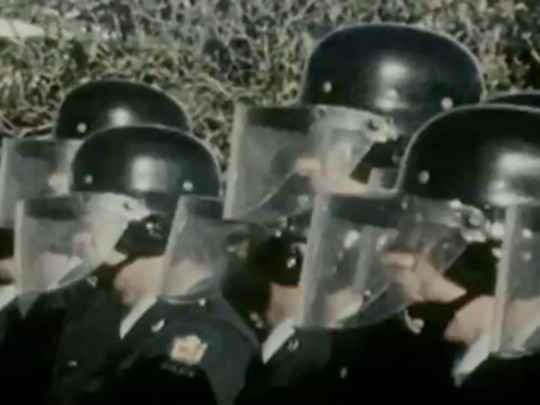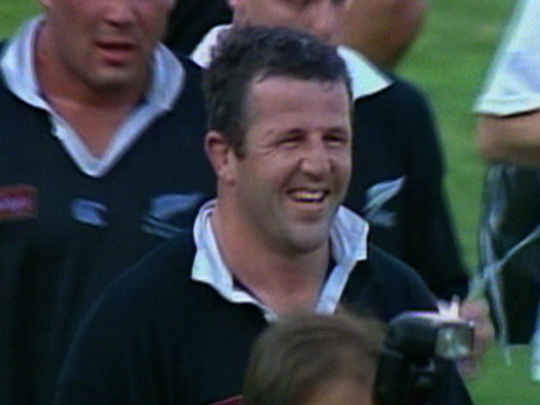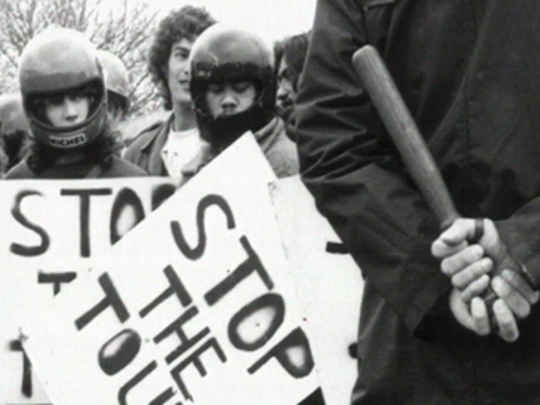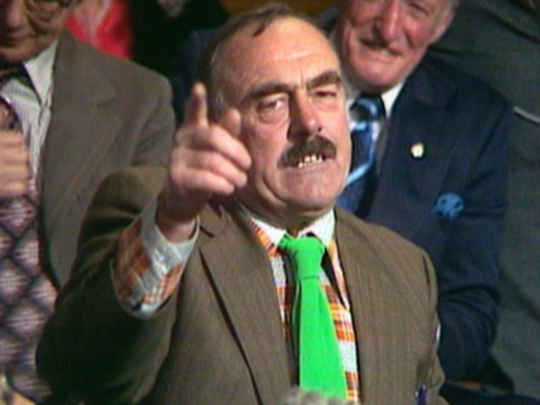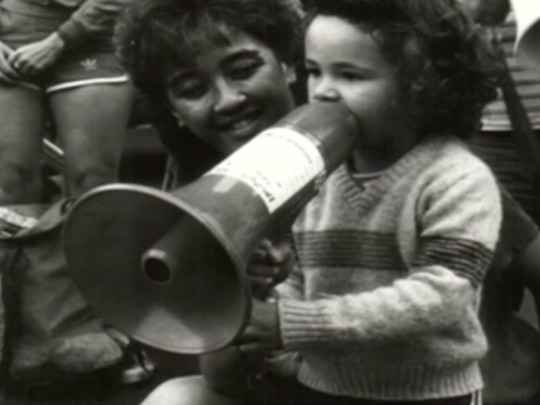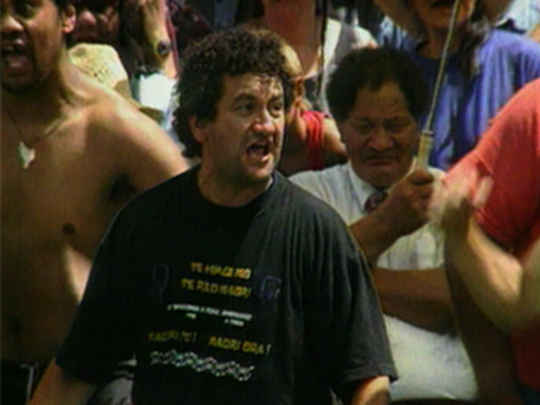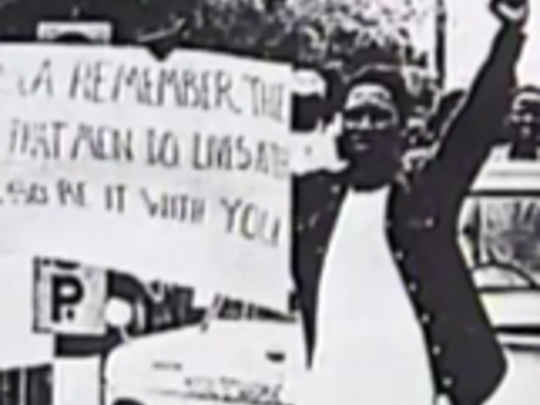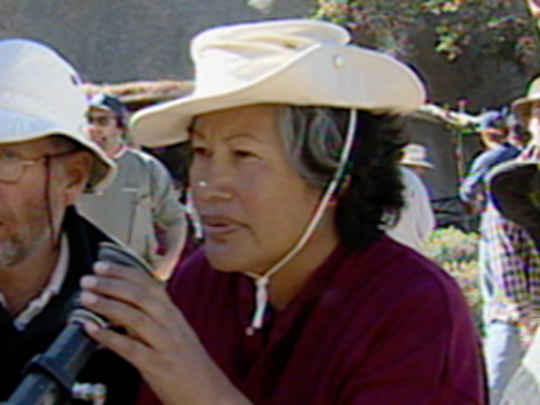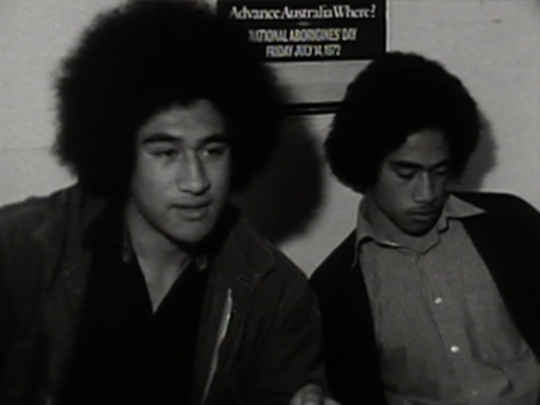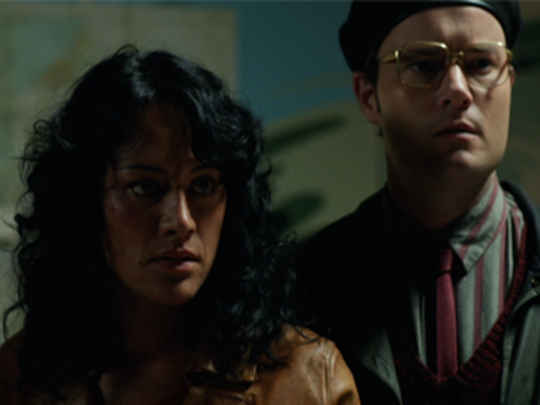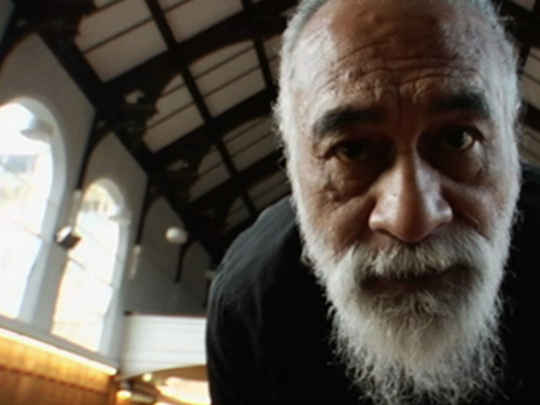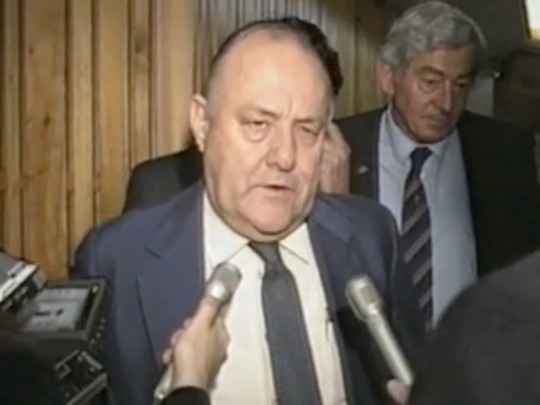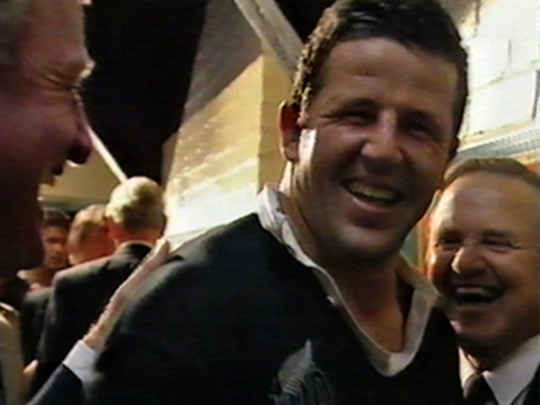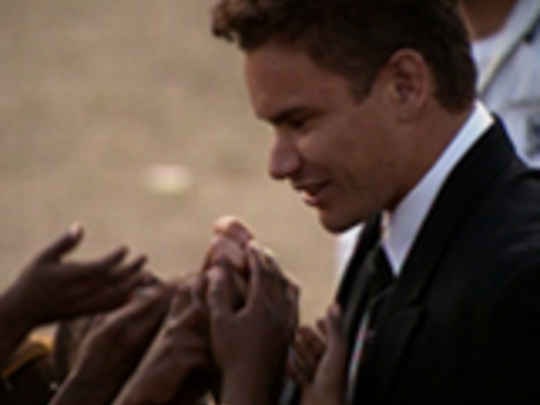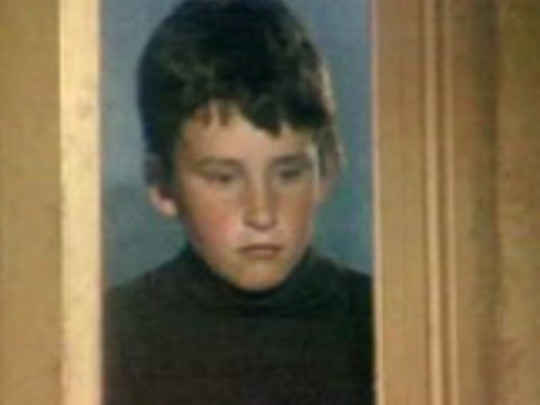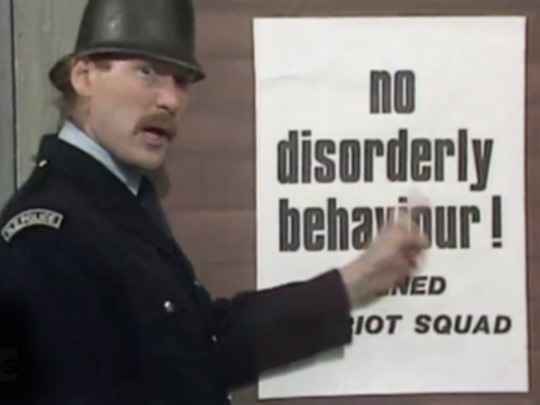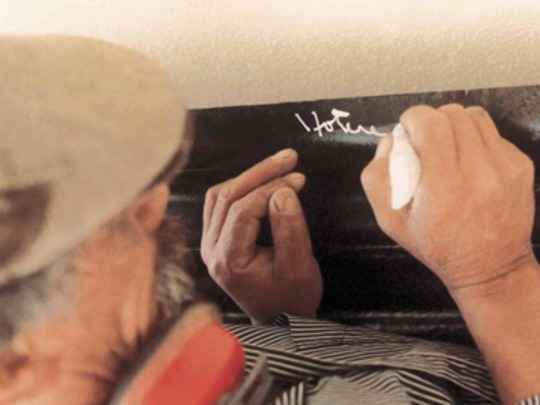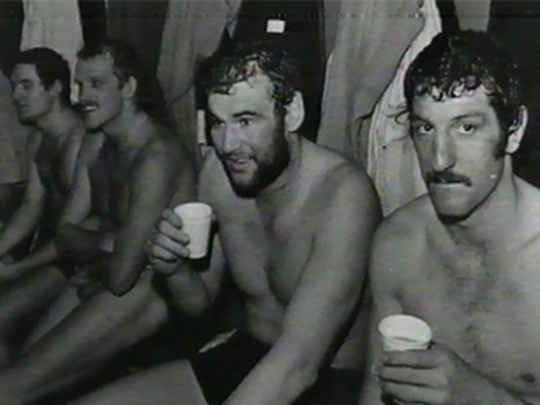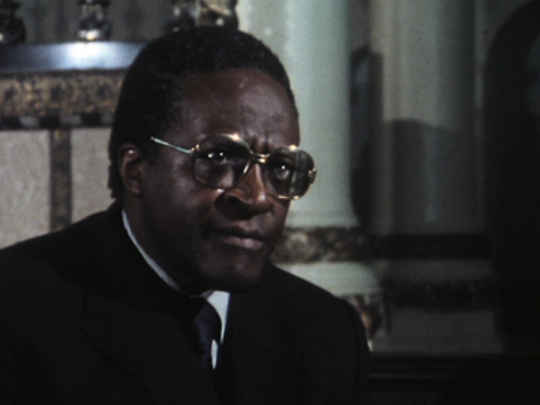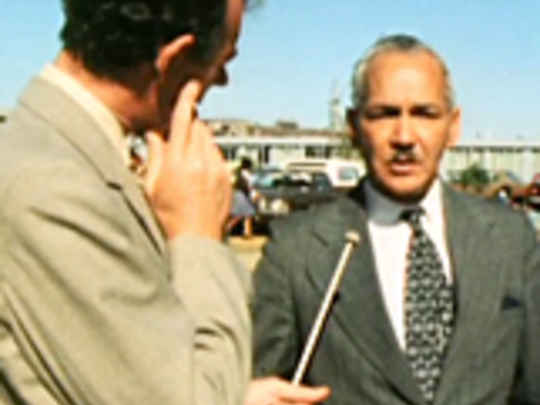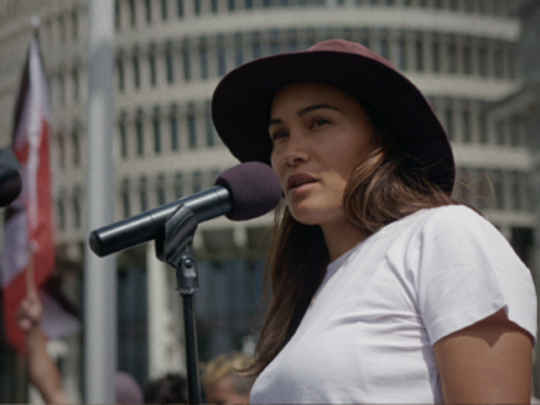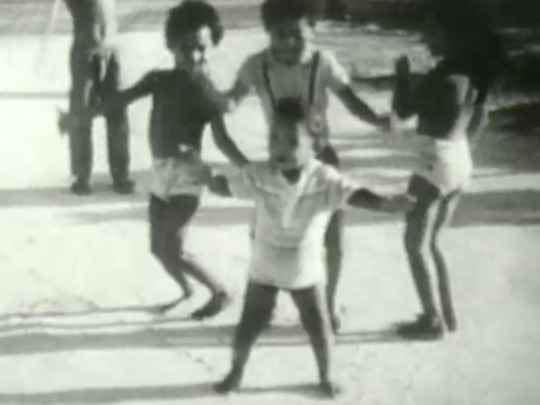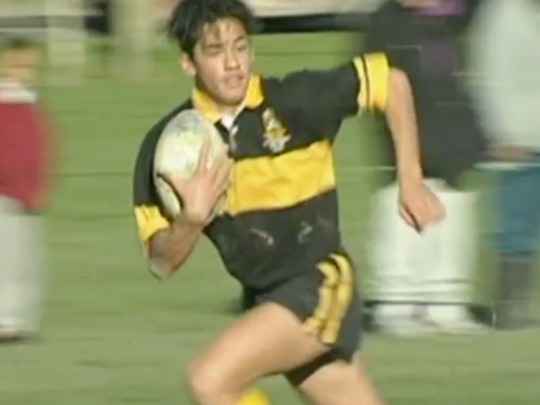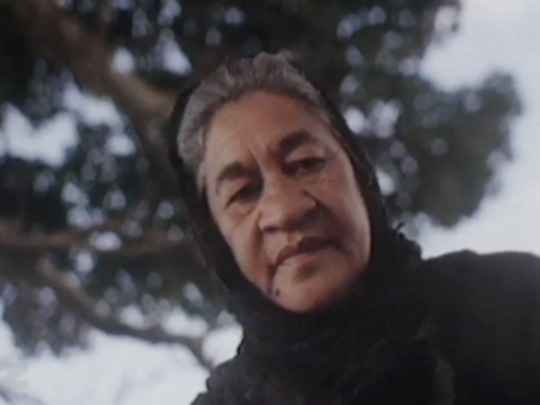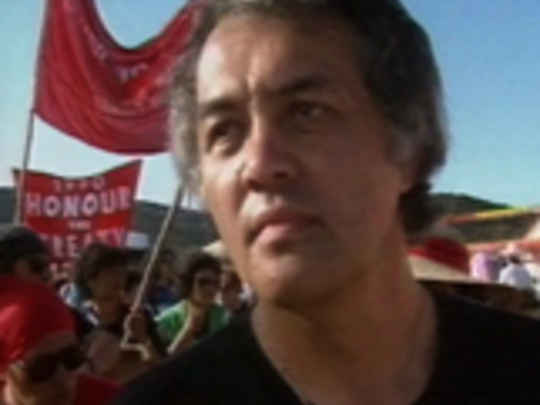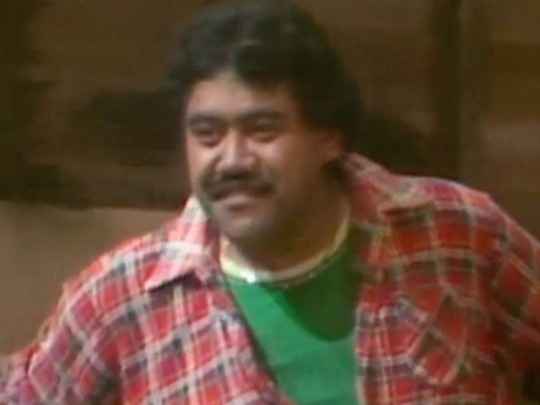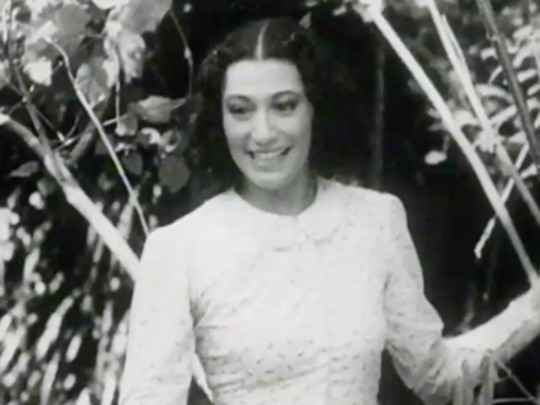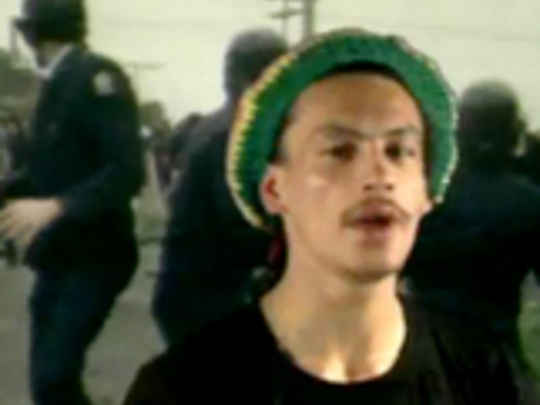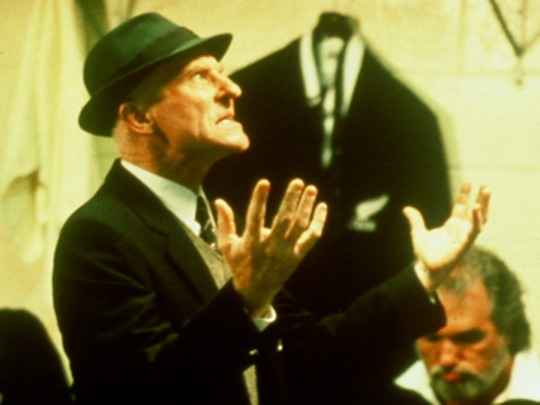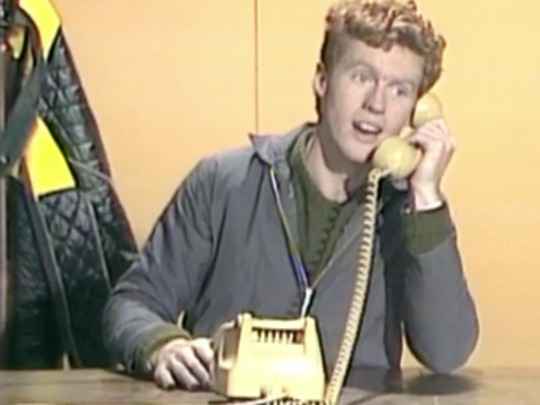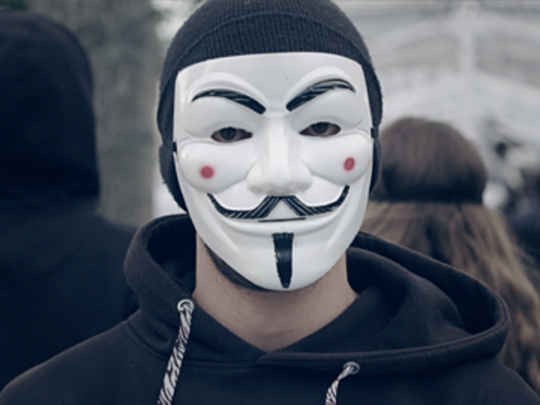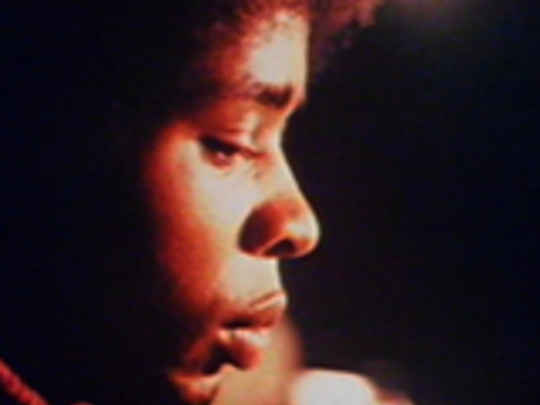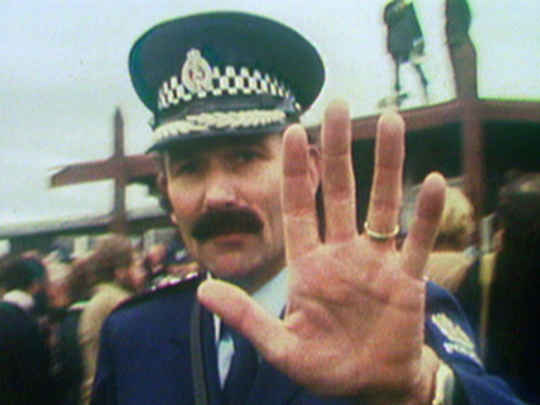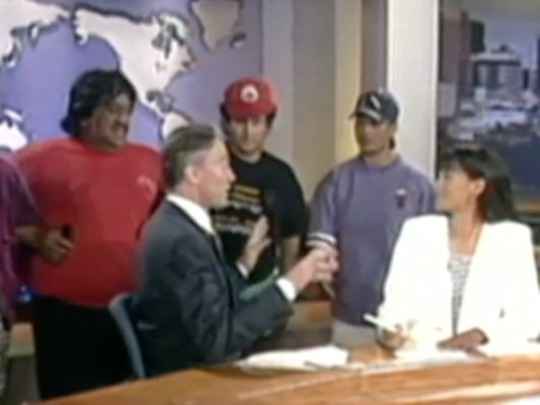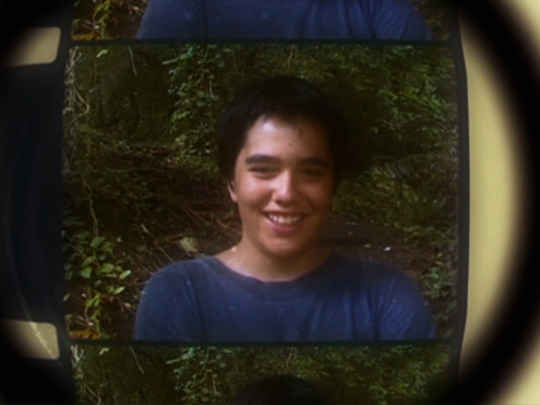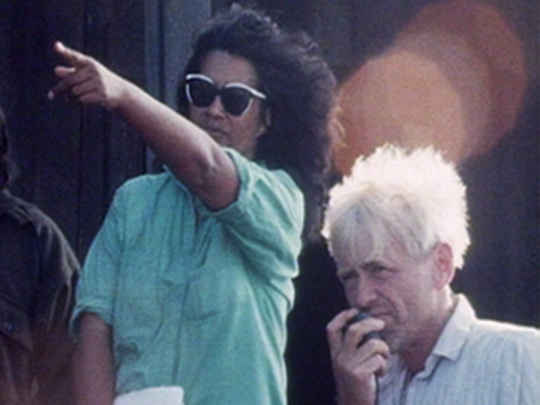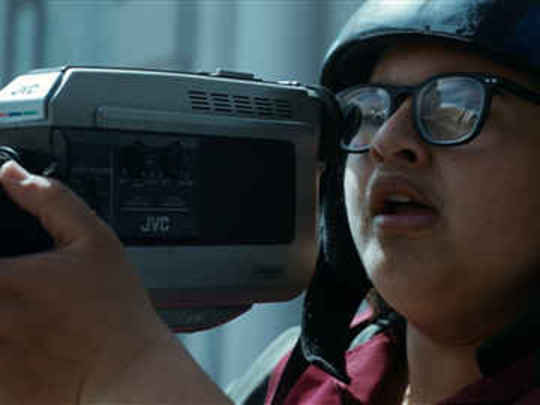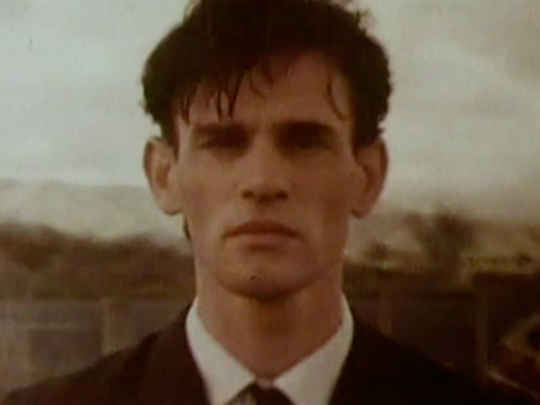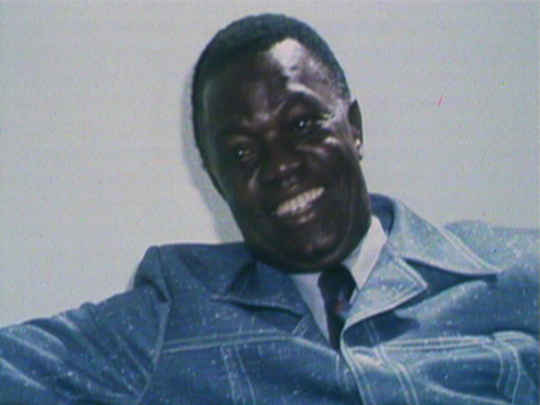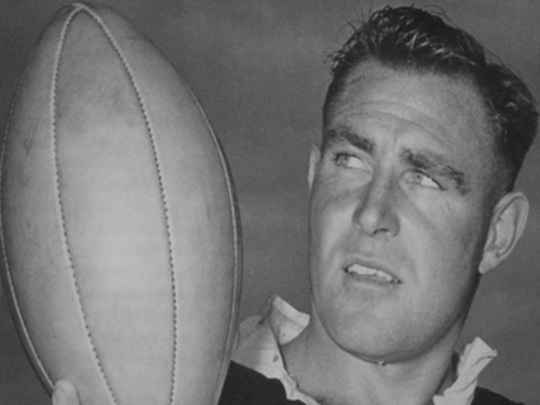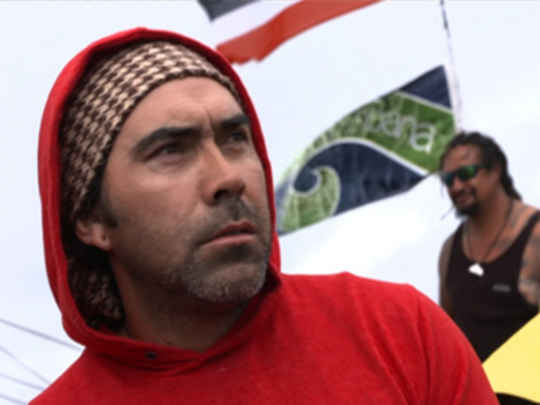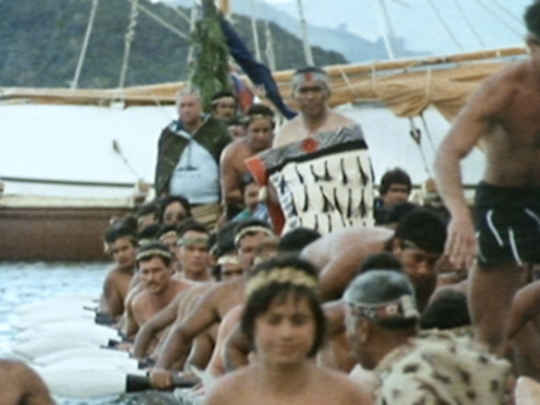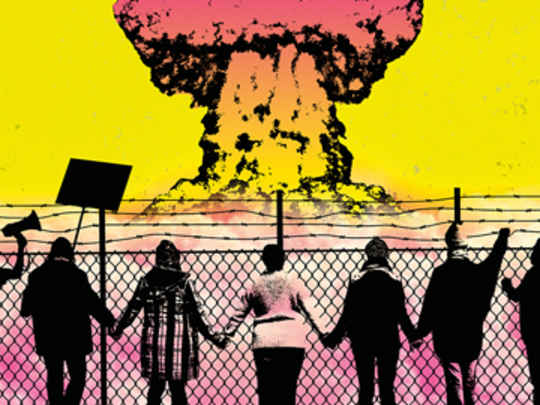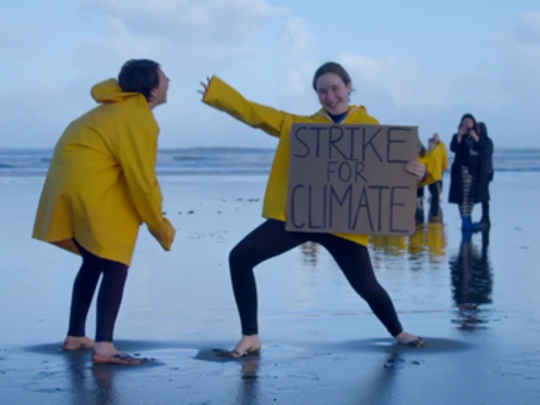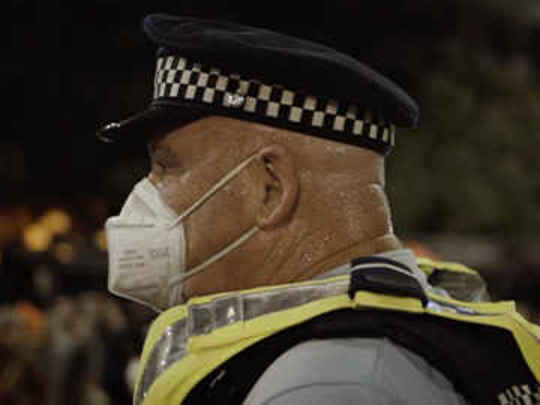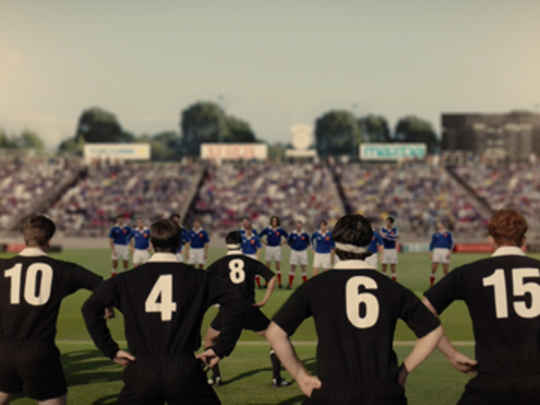Patu!
Film (Full Length) – 1983
We do not fear you. We might shed blood on the road, we might show some bruises tonight, but at least we can sleep with a clear conscience. We will sleep with a clear conscience. Many of you won’t. Some of you might think you will, but history is on our side, and that’s what matters . . . History is always on the side of the people — not armies, not policemen and not governments. History is always on the side of the people.
– Actor Tama Poata in a speech to police, 87 minutes into Patu!
Yes, Patu! has a Māori perspective, but it does not override the mass mobilisation of New Zealand's white middle class, neither does it take credit from those who rightly deserve it, everyone who put themselves on the line. My perspective encourages people to look at themselves and examine the ground they stand on.
– Director Merata Mita responds to accusations Patu! is biased, in 1992 book Film in Aotearoa New Zealand, page 47
The police started coming round to my home after a court order empowered them to seize material relating to the tour for court cases. They came round perhaps a dozen times, and we were searched, followed, harassed in all sorts of ways . . . One night I woke up to find the police in the house with dogs. They had picked up my son as he was walking home from babysitting.
– Director Merata Mita in 1986 book Head and Shoulders, page 59
..there was rather a lot of controversy within the film industry and within anybody who knew that the film was being made, to Merata actually being the director of the film. And it seemed that this criticism was coming because people felt that she would put a Māori bias onto the film. Of course nobody questioned the fact that everything else that went onto television at that stage in this country actually had a Pākehā bias because there were no Māori people inputting into either television or the film industry.
– Patu! editor Annie Collins, in 1998 documentary Rangatira - Making Waves
At the end of the showing there were very few dry eyes in the room. And I was very very deeply moved.
– South African Archbishop Desmond Tutu describes a screening of Patu!
I'd like to welcome you all from out of town to the city of Palmerston North, which is a city under siege. We've got 1500 cops here, we've got long batons, short batons, we've got dogs, we've got barbed wire. We've got the air force overhead and the army at the ground. Which will make any South Africans in this town feel pretty much at home, because it's very much like Johannesberg.
– Unidentified protester in Palmerston North
The whole world's watching, the whole world's watching.
– A much repeated protest chant
What you did just then, you did for the last time. You do that when there's anything happening, and you'll get stomped on or locked up.
– A policeman is filmed addressing some protesters in Palmerston North
I've been fighting racist tours since 1959, and I see no reason to stop.
– A woman protesting against the tour in Auckland, on 1 May 1981
Just in Auckland here, we've delivered today 100,000 leaflets to letter boxes in Auckland . . . people are now realising that this tour really is on, and they've got to really get out and stop it. Public opposition is building fast...
– John Minto
it's a real shambles here at Rugby Park Hamilton. There's no way this game's going to start for quite a while, by the look of things. Red smoke bombs being thrown by the demonstrators, and people coming out from the stand, trying to put them out. The rugby crowd's booing and heckling the demonstrators . . . the situation seems under control, although it is very very tense.
– Radio broadcaster Graeme Moody finds himself covering a protest in Hamilton, on 25 July 1981
The thing that surprises me here in New Zealand is that there doesn't seem to be an awareness that in South Africa there is a big, black rugby union, which is the main rugby union for the majority of the people. I call it the big black union because it's 90 odd per cent black, not because they want it that way. It's non-racial, and white's are welcomed in it.
– Banned South African newspaper editor Donald Woods, after being invited to New Zealand by an anti-tour group
Patu! stands as a landmark contribution to documentary and to cinema as direct action, easily placed alongside other works like Agnes Varda’s The Black Panthers (1968) and Barbara Kopple’s Harlan County, USA (1976). It holds a special place in the hearts of the indigenous filmmakers who were inspired and energised by it, and who recognised the paepae aspect of authorship mirrored in their own cultures. Most significantly, it was viewed with respect and solidarity by Black South Africans, including Archbishop Desmond Tutu, and by fellow Indigenous people. Few works of documentary ever become moral as well as artistic achievements.
– Writer Dan Taipua pays tribute to Patu!, The Spinoff, 30 July 2021
The film's greatest achievement, apart from the fact it was actually made, is its skilful editing. Images resonate or clash with each other to create an impressionistic history, whether it is clowns armed with baguettes, street theatre by school kids, protesters facing down police, or the Mongrel Mob marching ominously into the fray . . . Patu! may be agitprop but it is remarkable agitprop — a voice, angry, intelligent and Māori, from beyond the establishment.
– Hamish McDouall in 2009 book 100 Essential New Zealand Films, page 136
...it started out being the film that recorded how the tour would be stopped, and it turned into this ugly monster that became the Springbok tour.
– Director Merata Mita on Patu!, in 1998 documentary Rangatira - Making Waves
...it was just a snap thing. It turned, the underbelly of New Zealand society showed up, and it was pretty ugly. It was vicious, it was violent, it was racist, and that was a shock to me. But it was a good shock, because it taught me never again to underestimate what I was up against.
– Director Merata Mita on abuse directed at her and Patu! cameraman Barry Harbert during filming. in 1986 book Head and Shoulders, page 59
The film created almost as much controversy as the tour itself. In drawing a parallel between a racist South Africa and a Pākehā state which was prepared to go to extreme lengths, putting its police in riot gear for the first time ever, in order to preserve links with the apartheid regime, Mita struck at the heart of New Zealand society.
– Writers Jocelyn Robson and Beverley Zalcock on Patu!, in their 1997 book Girls’ Own Stories - Australian and New Zealand Women's Films, page 51
So far the highest contribution has come from the churches — 20,000 dollars— The Arts Council has granted 13.000 dollars, and the Film Commission has lent 18,000.
– Reporter Alison Parr on the biggest contributors to Patu!

